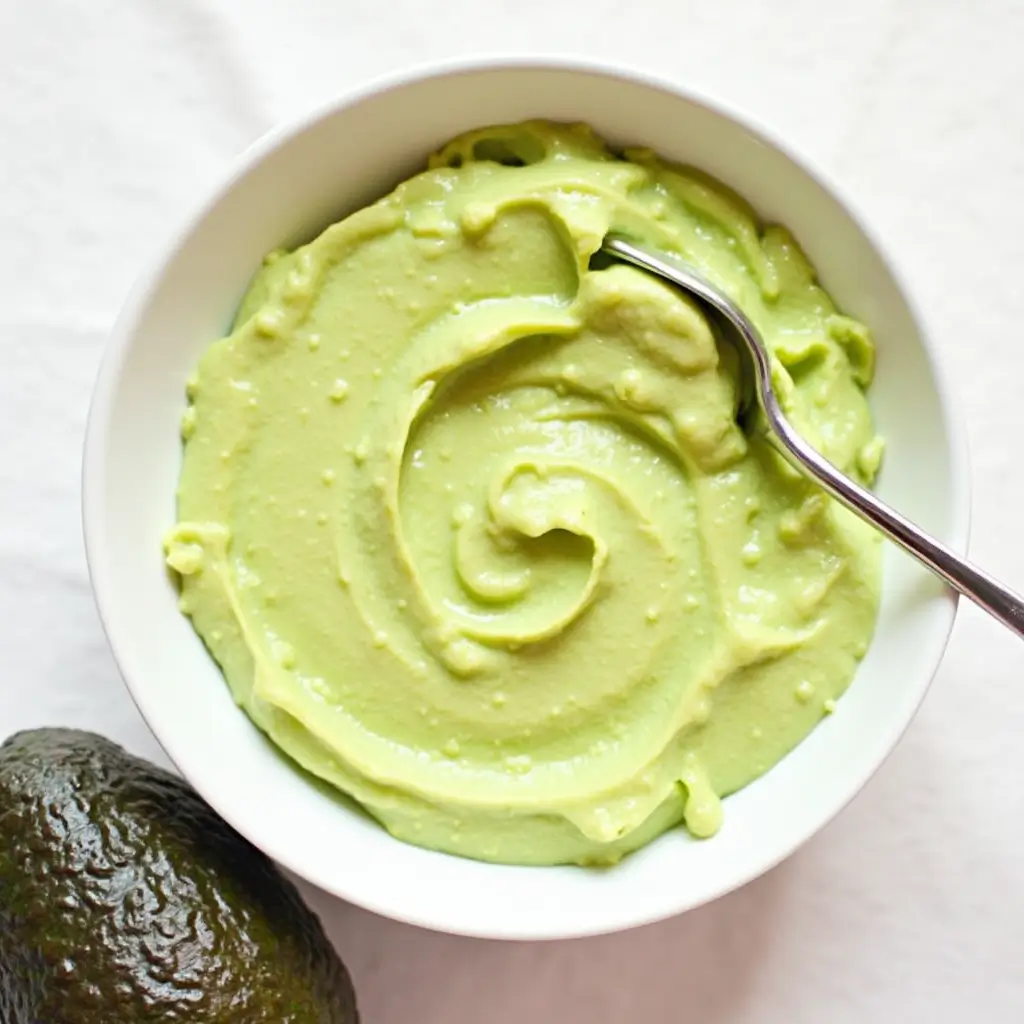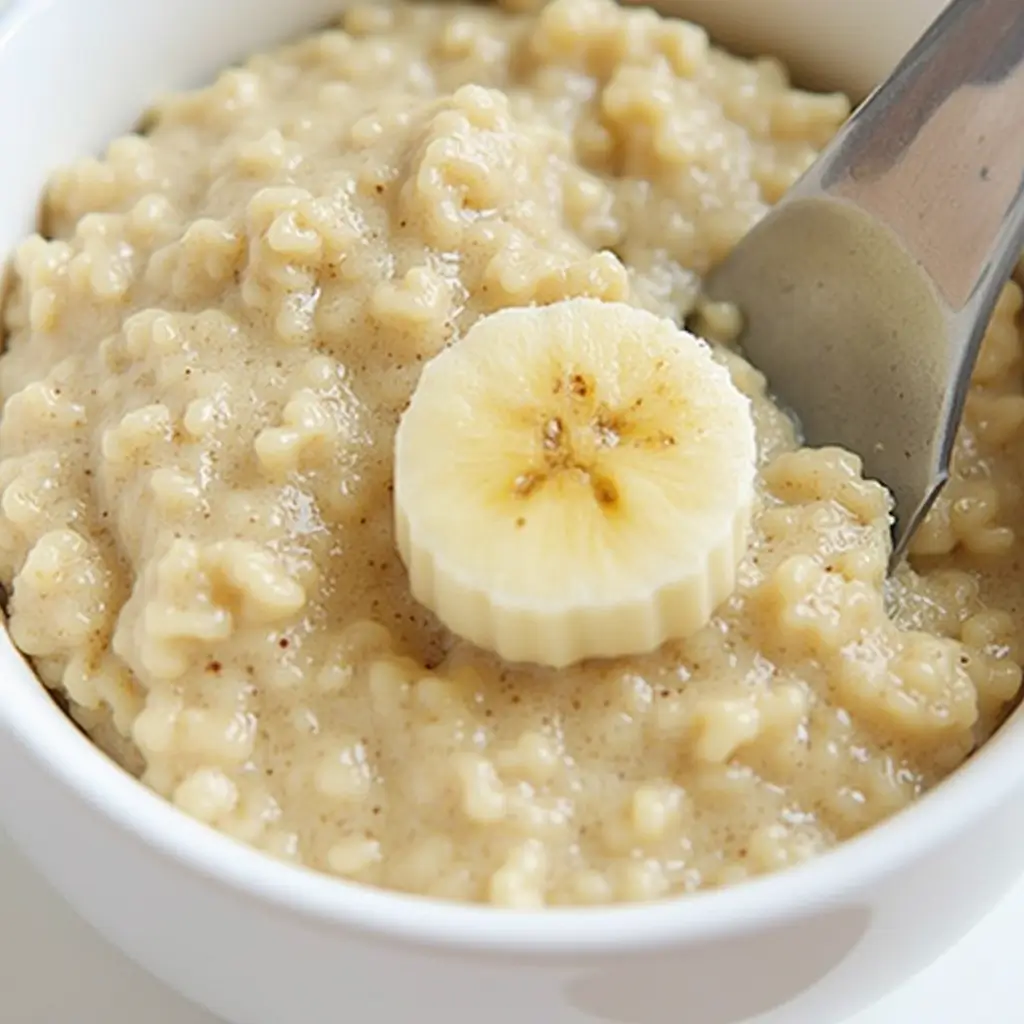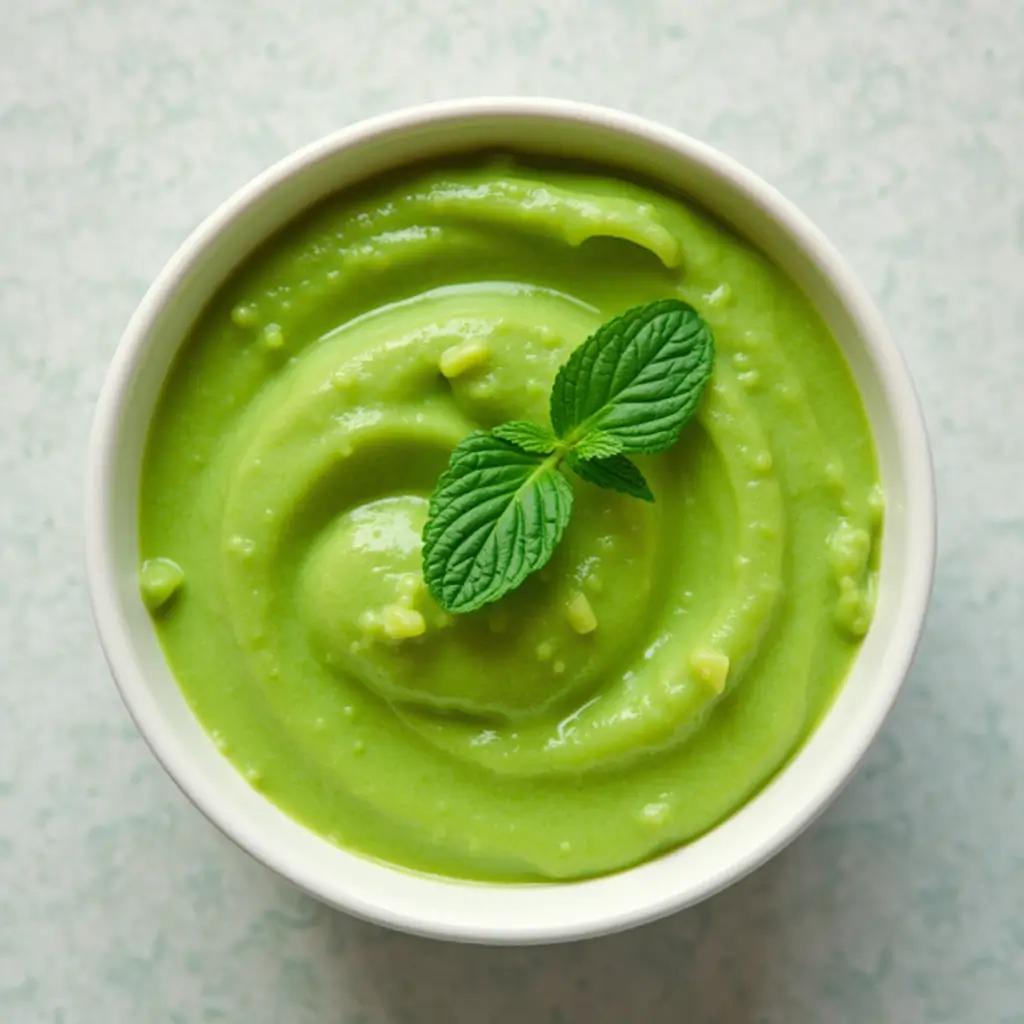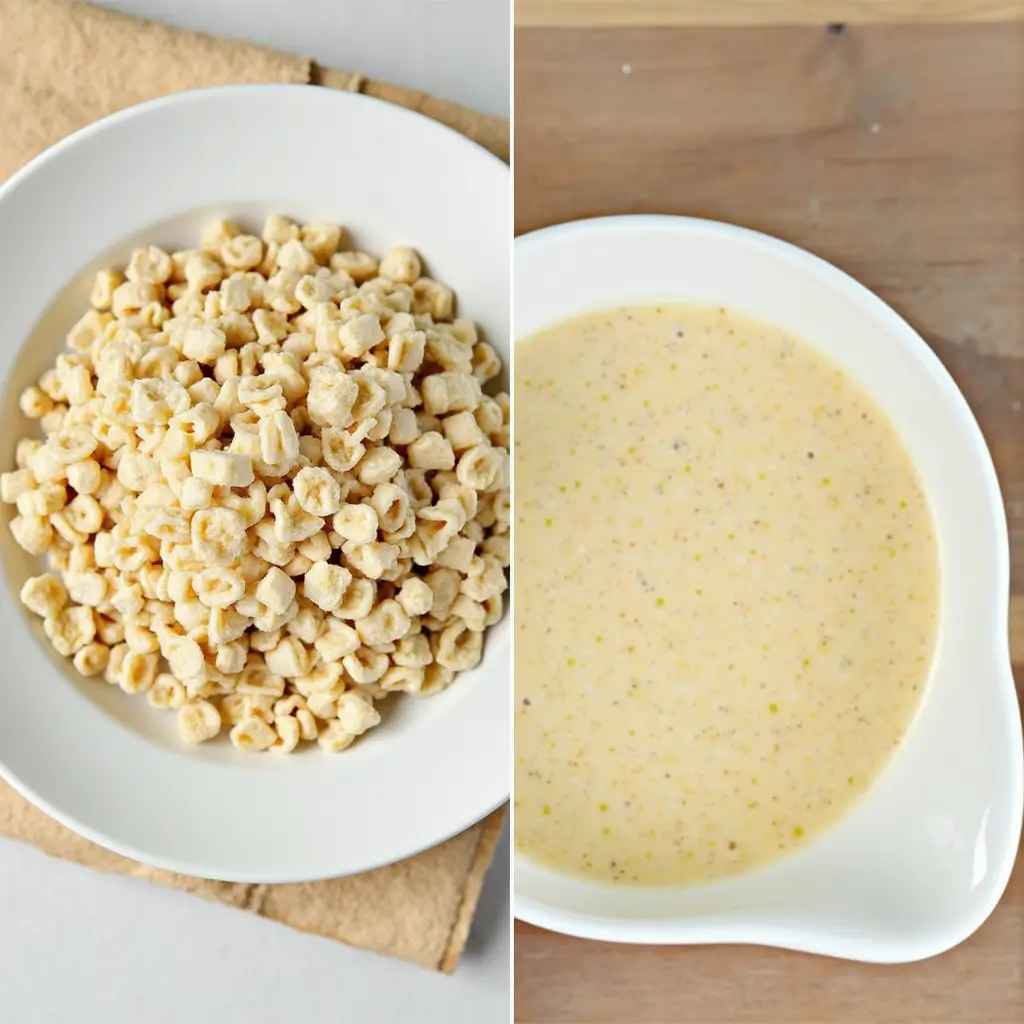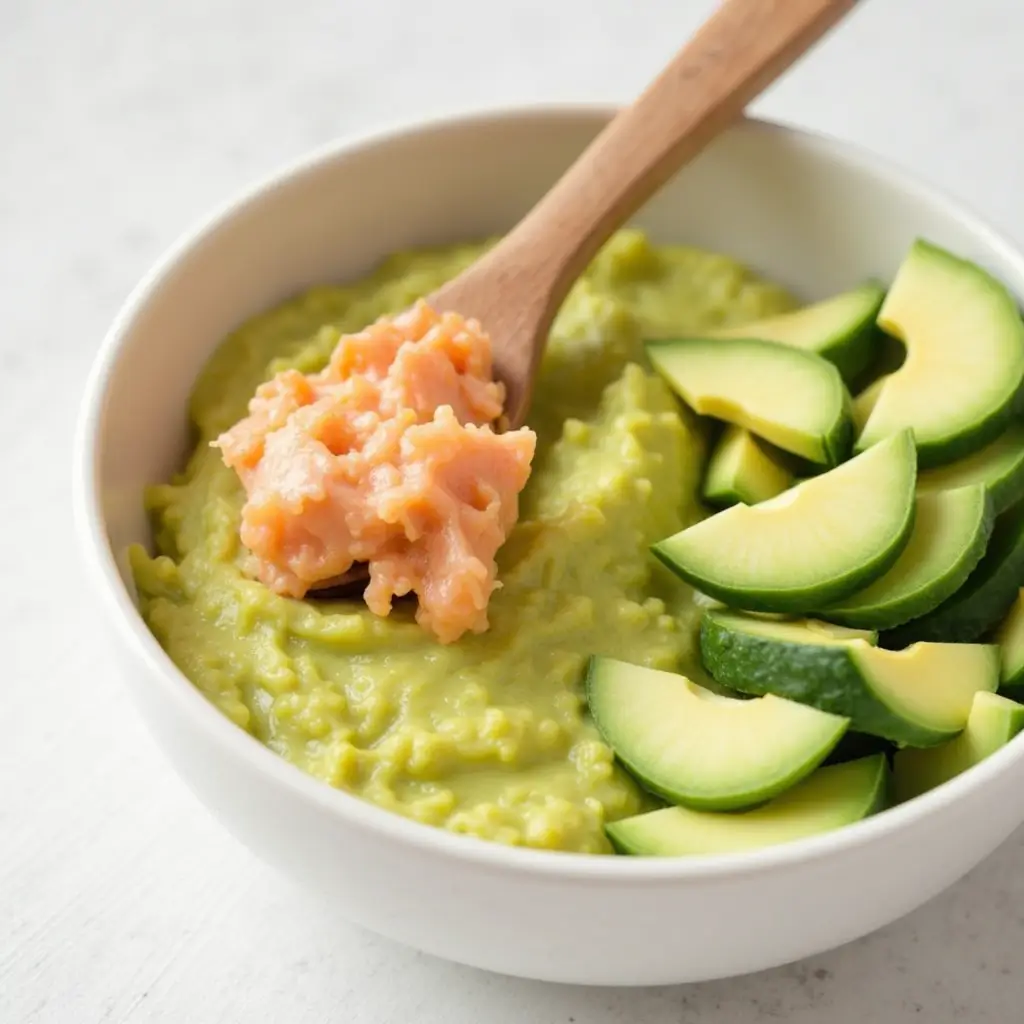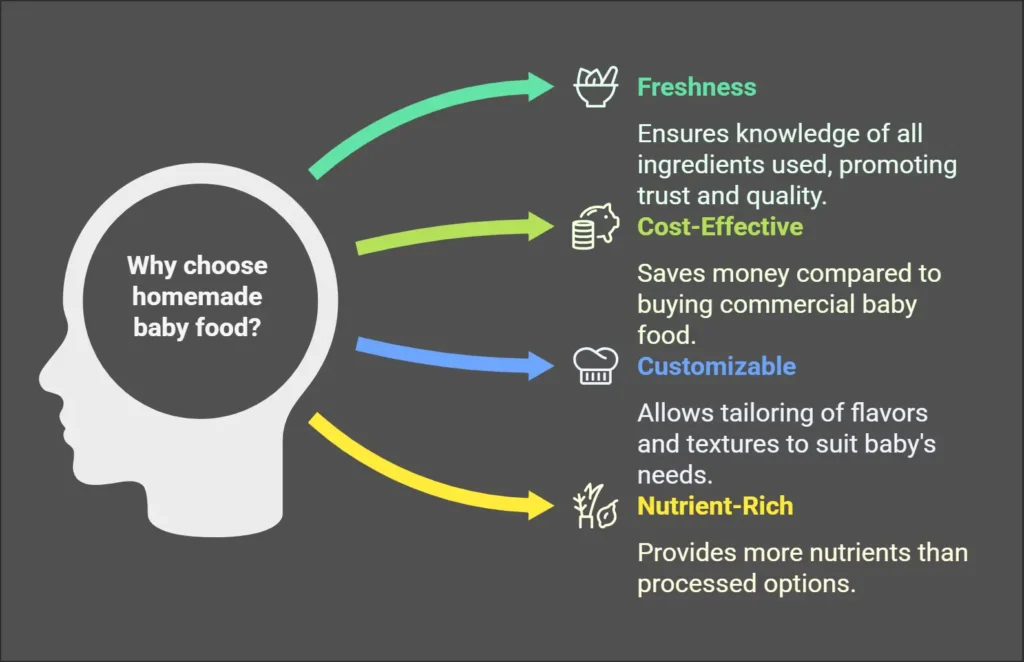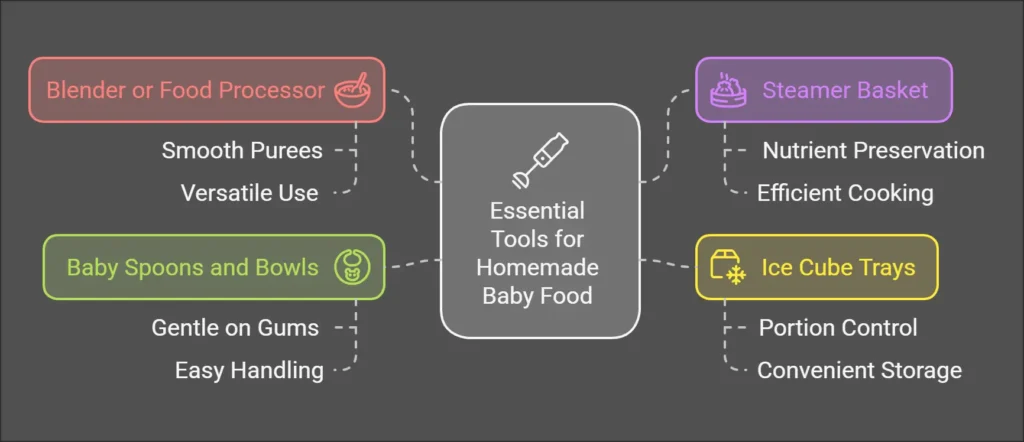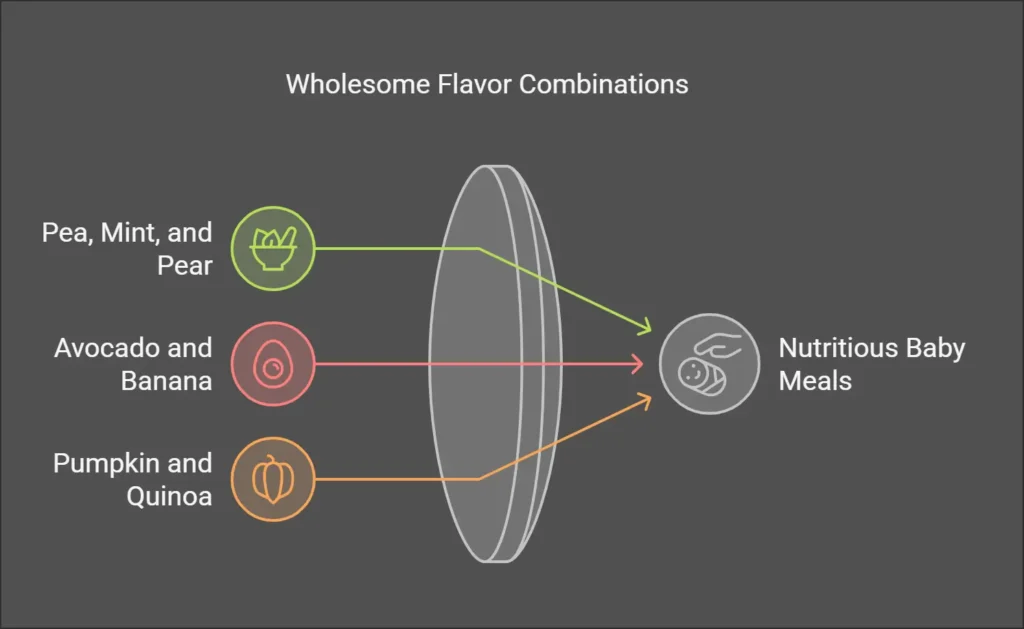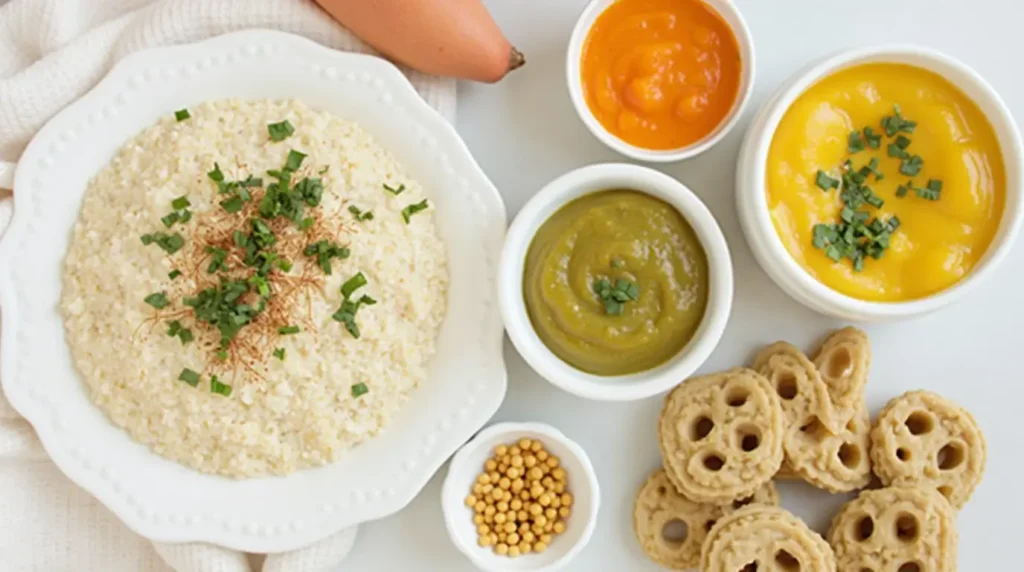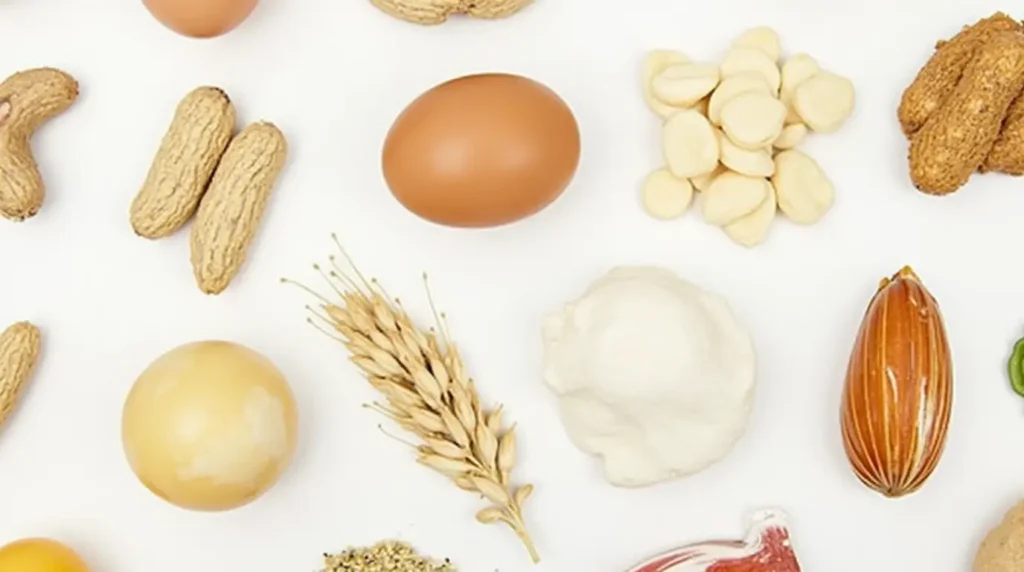Introduction
Nothing beats the goodness of homemade baby food when it comes to feeding your baby. It’s fresh, free from preservatives, and customizable to your baby’s needs. Plus, making your own baby food is way easier than you think! With a few simple ingredients and a little prep time, you can whip up nutritious meals that your baby will gobble up in no time.
We’ll explore the benefits of homemade baby food, essential tools, easy recipes, and tips to make the process seamless. Whether you are a first-time parent or looking for new ideas, these homemade baby food recipes will set you up for success!
Essential Tools for Making Baby Food
Before diving into recipes, let’s talk about the tools you’ll need:
- Blender or food processor: To puree foods into smooth textures.
- Steamer or saucepan: To cook fruits and veggies until soft.
- Ice cube trays or baby food storage containers: For freezing portions.
- Silicone spatula: Scrape every bit of goodness from the blender.
- Fine mesh strainer: To remove any unwanted lumps for younger babies.
Age-Appropriate Homemade Baby Food Recipes
4–6 Months: Single-Ingredient Purees
At this stage, your baby is just starting solids, so smooth purees are the way to go.
1. Creamy Sweet Potato Puree
Ingredients:
- 1 sweet potato
- Water or breast milk
Instructions:
- Peel and chop the sweet potato into small chunks.
- Steam or boil until soft (about 10–15 minutes).
- Blend with a bit of water or breast milk until smooth.
- Serve fresh or store in the fridge for up to 3 days.
2. Apple Delight Puree
Ingredients:
- 1 apple (peeled and cored)
- Water
Instructions:
- Steam or simmer the apple until soft.
- Blend until smooth, adding water if needed.
- Serve immediately or store in portions.


 Wholesome & Delicious! This Apple Delight Puree is a smooth, naturally sweet treat packed with essential nutrients for your baby’s healthy growth.
Wholesome & Delicious! This Apple Delight Puree is a smooth, naturally sweet treat packed with essential nutrients for your baby’s healthy growth.6–9 Months: Combination Purees
Now, it’s time to introduce some new flavors and textures!
3. Banana Avocado Mash
Ingredients:
- 1 ripe banana
- ½ avocado
Instructions:
- Mash the banana and avocado together until smooth.
- Serve fresh – no need to cook!
4. Carrot and Pea Puree
Ingredients:
- 1 carrot (peeled and chopped)
- ½ cup peas
- Water or breast milk
Instructions:
- Steam the carrot and peas until soft.
- Blend with a bit of liquid for desired consistency.
- Store in the fridge for up to 3 days.


 Wholesome & Colorful! This Carrot and Pea Puree is packed with vitamins and nutrients to support your baby’s growth and development.
Wholesome & Colorful! This Carrot and Pea Puree is packed with vitamins and nutrients to support your baby’s growth and development.9–12 Months: Soft Finger Foods
Babies at this age can handle chunkier textures and small finger foods.
5. Mini Oat Pancakes
Ingredients:
- ½ cup rolled oats
- 1 ripe banana
- 1 egg
Instructions:
- Blend the ingredients into a batter.
- Cook small pancakes on a non-stick pan until golden brown.
- Let them cool before serving.
6. Cheesy Broccoli Bites
Ingredients:
- ½ cup steamed broccoli (chopped)
- ¼ cup shredded cheese
- 1 egg
- ¼ cup breadcrumbs
Instructions:
- Mix all ingredients and form small patties.
- Bake at 375°F (190°C) for 10-12 minutes.
- Serve warm.


 Cheesy Broccoli Bites – A Fun & Nutritious Finger Food! These soft, cheesy broccoli bites are packed with protein and essential vitamins, making them perfect for little hands to grab and enjoy.
Cheesy Broccoli Bites – A Fun & Nutritious Finger Food! These soft, cheesy broccoli bites are packed with protein and essential vitamins, making them perfect for little hands to grab and enjoy.
 Mini Oat Pancakes – The Perfect Baby-Friendly Breakfast! These soft, nutritious pancakes are made with just three simple ingredients and are ideal for little hands to grasp and enjoy.
Mini Oat Pancakes – The Perfect Baby-Friendly Breakfast! These soft, nutritious pancakes are made with just three simple ingredients and are ideal for little hands to grasp and enjoy.Storage and Meal Prep Tips
- Freeze in small portions: Use ice cube trays to portion meals.
- Label everything: Write the date and ingredients to keep track.
- Use within 3 months: Frozen baby food stays fresh for up to 3 months.
- Thaw properly: Place in the fridge overnight or warm gently before serving.
FAQs
1. How do I know when my baby is ready for solids?
2. Can I use frozen fruits and vegetables?
3. How do I introduce allergens?
4. Can I add spices or herbs?
Conclusion
Making homemade baby food doesn’t have to be complicated or time-consuming. With the right ingredients, a little prep, and a sprinkle of creativity, you can provide your little one with nutritious and delicious meals every day. Plus, the joy of watching your baby enjoy fresh, wholesome food is priceless!
So, roll up your sleeves, grab those fresh fruits and veggies, and start whipping up some homemade baby food recipes today!



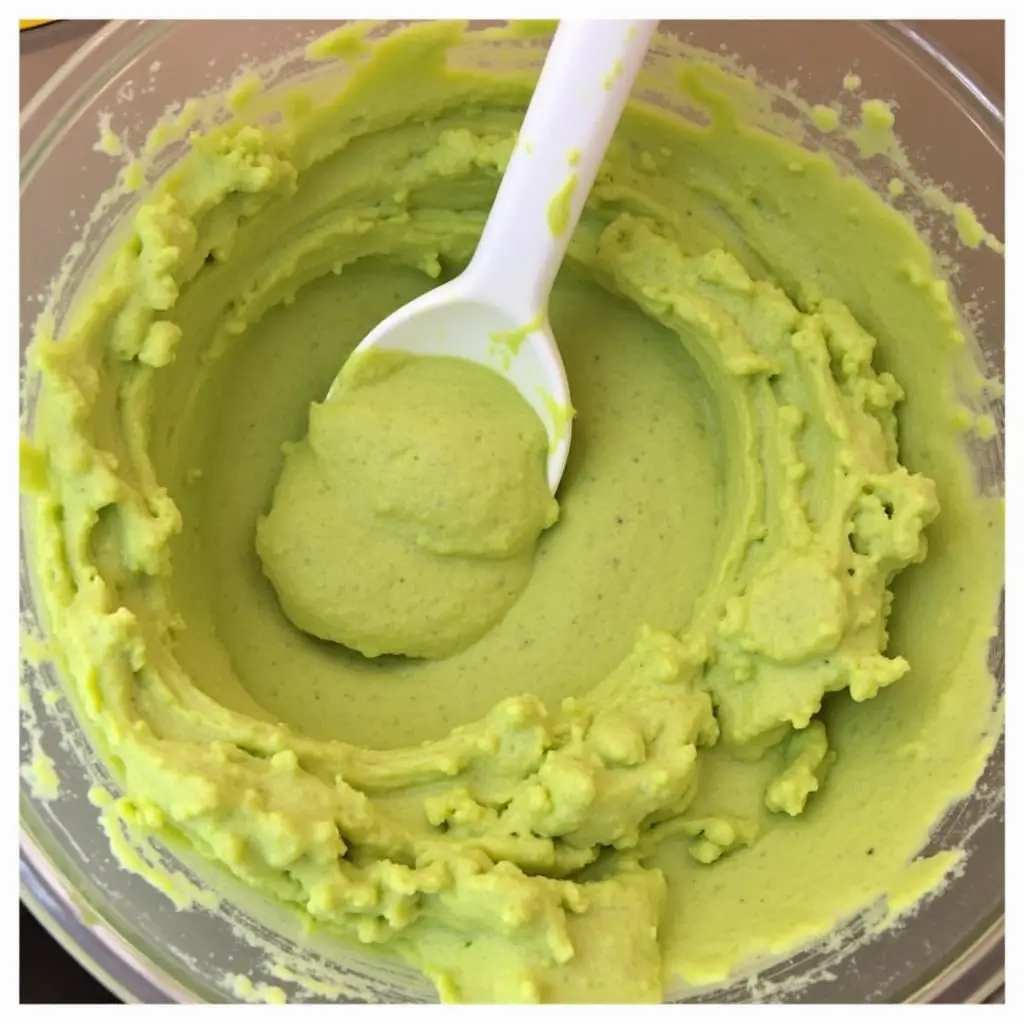
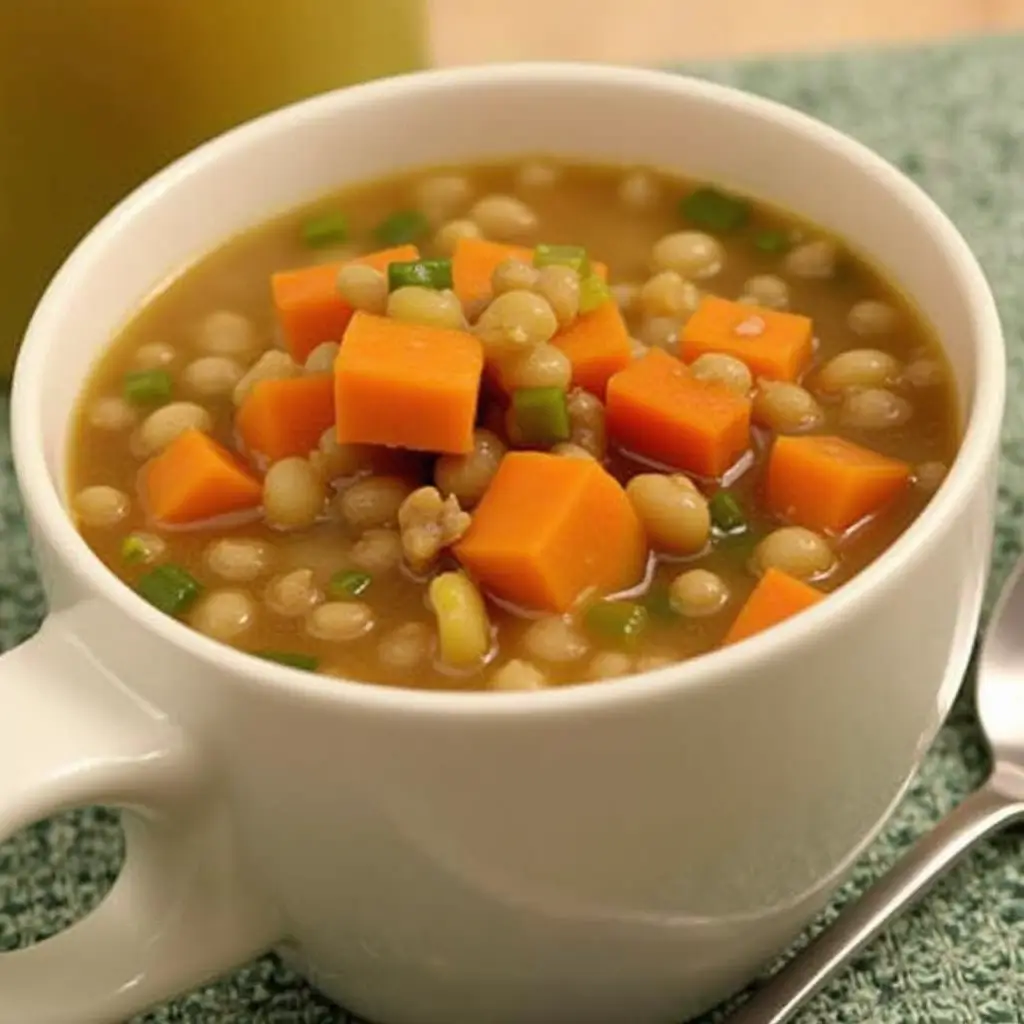


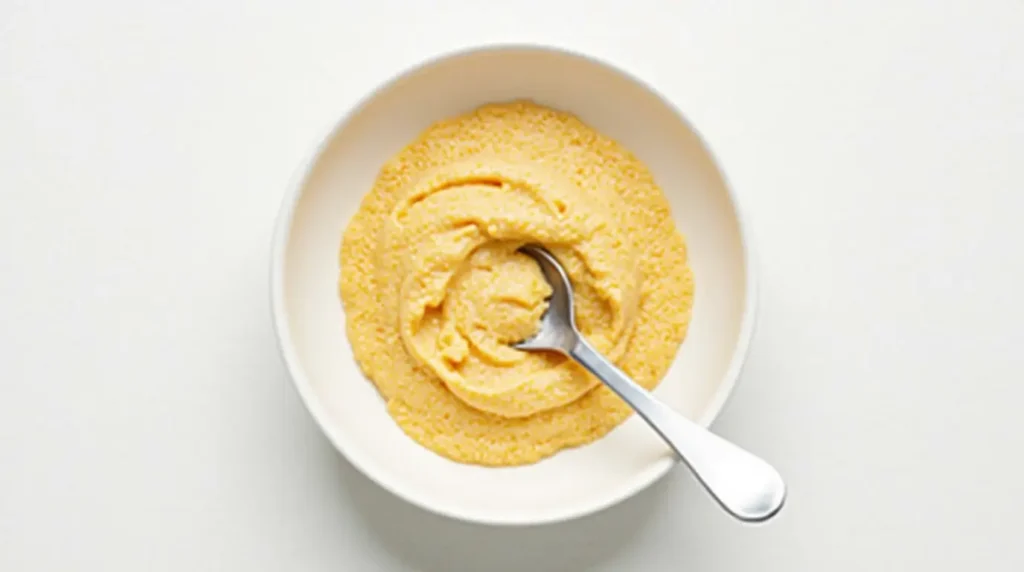
 Gentle & Nutritious! Rice cereal is a classic first food that’s easy to digest and packed with iron for growing babies.
Gentle & Nutritious! Rice cereal is a classic first food that’s easy to digest and packed with iron for growing babies.
 Creamy & Naturally Sweet! Butternut squash puree is the perfect nutrient-packed introduction to solid foods for growing babies.
Creamy & Naturally Sweet! Butternut squash puree is the perfect nutrient-packed introduction to solid foods for growing babies.

